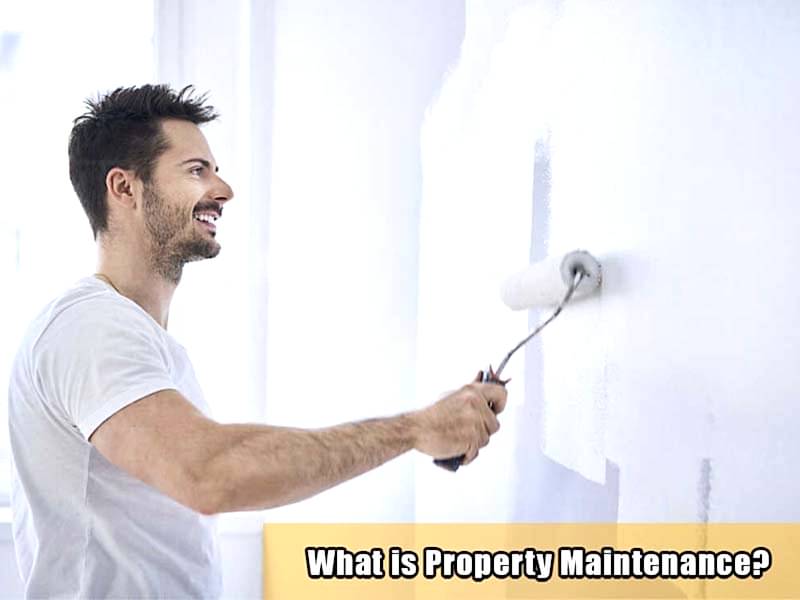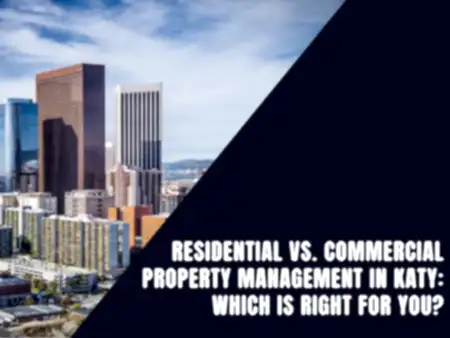Hey there! Today, let’s dive into the world of property maintenance. You might have heard this term before, but what exactly does it mean? Simply put, property maintenance is all about keeping buildings and grounds in top shape. It involves a range of tasks, from routine cleaning and gardening to major repairs and renovations. Keeping up with property maintenance not only ensures that everything looks great, but it also helps prevent small issues from turning into big problems. In this blog post, we’ll explore the types of workers involved in property maintenance, give examples of what they do, talk about certifications and training, highlight the benefits of hiring a pro, and walk you through the steps to find the right property manager.
Types of Property Maintenance Workers

There are several types of workers who specialize in different aspects of property maintenance. Knowing who does what can help you understand how to keep your property in great shape.
General Maintenance Workers
These are the jack-of-all-trades in property maintenance. General maintenance workers handle a variety of tasks like minor repairs, cleaning, and basic upkeep. They’re usually the first to respond to maintenance requests and can fix things like plumbing leaks, electrical problems, and paint jobs.
Specialized Technicians
These pros have specific expertise. Think HVAC technicians, electricians, and plumbers. They take care of more complex issues that require specialized skills and certifications. For example, an HVAC technician can fix your air conditioning, while an electrician can safely handle wiring problems.
Groundskeepers and Landscapers
These folks are all about keeping the outside of your property looking great. They mow the lawn, trim hedges, plant flowers, and even clear snow in the winter. A well-maintained exterior not only looks good but can also prevent problems like soil erosion.
Custodians and Janitors
Custodians and janitors focus on keeping the inside of your property clean and tidy. They sweep, mop, sanitize bathrooms, and manage waste disposal. A clean property is essential for health and safety, especially in shared spaces like offices or apartment buildings.
Facility Managers
Facility managers oversee the whole maintenance operation. They make sure all tasks are completed on time and within budget. They also handle scheduling, supervise the maintenance staff, and ensure everything complies with safety regulations.
Examples of Property Maintenance

Property maintenance includes a wide range of tasks aimed at keeping everything in top condition. Here are some common examples:
Routine Inspections
Regular inspections help catch potential issues before they become big problems. This might include checking for leaks, inspecting HVAC systems, and making sure safety equipment is working properly.
Repairs
Timely repairs are crucial to maintaining your property’s integrity. This could involve fixing broken windows, repairing roof damage, or addressing plumbing issues. The goal is to fix problems before they get worse.
Landscaping
Good landscaping does more than just make your property look nice. It also helps prevent issues like soil erosion. Tasks here include mowing lawns, trimming trees, and maintaining flower beds.
Cleaning
Regular cleaning of both the inside and outside of your property is essential. This includes power washing exterior walls, cleaning carpets, and sanitizing common areas. A clean property is more inviting and can prevent health issues.
Seasonal Maintenance
Different seasons bring different challenges. Preparing your property for each season is vital. This could mean winterizing pipes, servicing HVAC systems before summer, or clearing gutters in the fall to prevent blockages.
Property Maintenance Certifications and Training

Proper training and certification are crucial for anyone involved in property maintenance. These credentials ensure that workers are capable and safe. Here are some common certifications and training programs:
Certified Maintenance and Reliability Professional (CMRP)
CMRP certification is great for maintenance managers. It focuses on best practices in maintenance and reliability, helping them manage everything more efficiently.
HVAC Certification
HVAC technicians need specific certification to handle refrigerants and perform complex repairs. This ensures they know what they’re doing and can work safely.
Plumbing License
Licensed plumbers have completed extensive training and passed exams. This certification means they can safely and effectively handle plumbing issues, from minor leaks to major pipe installations.
Electrical Certification
Electricians must be certified to perform electrical repairs and installations. This certification ensures they understand safety protocols and electrical codes, which is crucial for preventing fires and other hazards.
OSHA Training
The Occupational Safety and Health Administration (OSHA) provides training that ensures maintenance workers understand and comply with safety regulations. This training reduces the risk of accidents and injuries on the job.
Advantages of Hiring a Property Maintenance Professional

So why should you consider hiring a property maintenance professional? Here are some key benefits:
Expertise
Professionals have the knowledge and experience to handle a wide range of maintenance tasks efficiently. They can quickly diagnose problems and know the best way to fix them.
Time-Saving
Outsourcing maintenance allows you to focus on other important tasks. You won’t have to worry about finding the time to fix that leaky faucet or mow the lawn.
Cost-Effective
Regular maintenance can prevent costly repairs down the line. By addressing issues early, professionals can save you money in the long run.
Increased Property Value
Well-maintained properties retain their value better and can even appreciate more quickly. Regular upkeep ensures everything stays in good condition, which is attractive to potential buyers or tenants.
Tenant Satisfaction
A well-maintained property provides a better living or working environment. Happy tenants are more likely to stay longer, reducing turnover and vacancy rates.
Steps to Hire a Property Manager

Hiring a property manager to oversee maintenance can be a game-changer. Here’s how to find the right one:
Define Your Needs
Start by figuring out what specific tasks and responsibilities you need the property manager to handle. This could range from routine maintenance to handling emergency repairs.
Research
Look for property management companies or independent managers with good reputations. Ask for recommendations from other property owners or check online reviews. It’s important to choose someone reliable and trustworthy.
Check Credentials
Make sure the property manager has the necessary certifications, licenses, and insurance to perform their duties. This ensures they’re qualified and legally allowed to do the work.
Interview Candidates
Conduct interviews to assess their experience, knowledge, and approach to property maintenance. Ask for references from previous clients and follow up to see if they were satisfied with the service.
Review Contracts
Carefully review the contract terms, including fees, services provided, and termination clauses. Make sure everything is clearly outlined to avoid any misunderstandings later.
Monitor Performance
Once you’ve hired a property manager, regularly review their performance. Ensure they are meeting your expectations and maintaining the property effectively. Regular check-ins and feedback can help keep things on track.
Conclusion
Property maintenance is a crucial part of real estate management. It keeps properties in excellent condition, maintains their value, and ensures a safe and comfortable environment for everyone. By understanding the different types of property maintenance workers, recognizing the importance of regular upkeep, and knowing how to hire qualified professionals, property owners can effectively manage their properties and maximize their investment. Hiring a property maintenance professional offers many benefits, from expert knowledge to cost savings and increased property value. By following the steps outlined above, you can find the right property manager to ensure your property stays in top shape and your tenants are happy.
Remember, a well-maintained property is not just about aesthetics—it’s about creating a safe, functional, and enjoyable space for everyone who uses it. So, whether you’re a property owner or manager, taking property maintenance seriously is key to long-term success.








